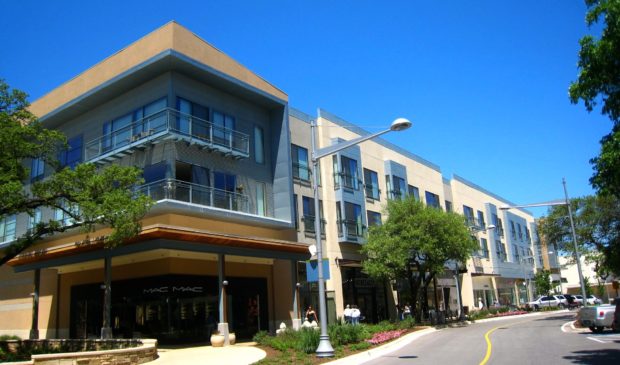Economic development sessions to target middle-class jobs, local business growth
Monday, June 5, 2017 by
Chad Swiatecki A focus on middle-class job growth, workforce development and growing existing businesses are some of the priorities the city’s business boosters will emphasize this week during a series of community meetings intended to shape local economic development policies.
The seven meetings from June 5-8 will each be directed toward a specific group – small business, workforce and the creative sector among them – identified as having a stake in how the city approaches policies such as business recruitment, real estate planning and incentives packages in the coming years.
A March City Council resolution directed city staff to hold community input sessions and gather extensive feedback and data to develop recommendations for changes to an assortment of economic development policies and tools. Next week’s meetings are the first portion of that process, which is expected to wrap up in the fall.
David Colligan, the city’s manager of global business expansion, told the Austin Monitor the update is overdue since it’s been close to a decade since the city’s Chapter 380 incentive agreements were significantly modified. He said studies like 2015’s Spirit of East Austin report that looked at how to bring economic equality to the city’s Eastern Crescent would be used on top of input from the community sessions.
“We’re taking a fresh look at everything and want to be inclusive while we do that, because it will help us unpack all the info and directions in the Council’s resolution,” Colligan said, adding that the city needs to balance its recruitment of high-profile tech and health care companies with bringing in more “middle skill” jobs with an income of $30,000 to $50,000.
Other priorities include building a creative sector economy that functions at a high level independent of large events and festivals, working with property developers to make their projects more connected to the neighborhoods around them, and improving place-making practices across the city.
Colligan said a frequent stumbling block in business development efforts is the city’s lengthy and frequently criticized planning and permitting processes, which can add months of holding costs onto a project. Improving and streamlining those processes, he said, would in effect provide an economic boost for businesses without the city having to use tax dollars for incentive packages.
“If a company needs love when they’re looking to expand, it’s not always the case that they require financial assistance but they want to know that the city will be there to address the little things like help with a curb cut or a turn lane they might need,” he said. “We’re also losing projects to nearby cities in those sectors like manufacturing or shipping and logistics that would be perfect for middle class work. A big part of it is those companies can’t afford the real estate, so while we might be the belle of the ball right now, dating the belle of the ball gets expensive.”
Jon Hockenyos, president of Austin’s TXP Inc., an economic strategy consulting firm, told the Monitor the city is wise to emphasize growing existing businesses and finding a mix of so-called “primary business,” which bring in dollars from outside the community, with small local businesses that can employ middle-class residents.
Of course, the city’s well-intended goals could take a hit from what most experts agree is a cooling off of Austin’s long stretch of strong economic growth.
“My job is to make those priorities and agendas dovetail with the market realities, and inform the conversation with what’s going on out there,” he said. “There’s an understandable temptation to say we don’t have to engage in recruiting and retaining businesses, but there are other cool places for people to go, too.”
Steve Jackobs, executive director of the Capital Idea nonprofit, which is focused on middle-class job training and education, told the Monitor the possible changes to city policy could lift some of an estimated 250,000 lower-class residents in Central Texas into a better station in life. To do that, though, he said businesses will need to play a role in training entry-level employees for advancement.
“The active participation of employers becomes very important, because it takes longer than two years to get a two-year degree and you need a deal with an employer to create the number of jobs that would be helpful,” he said. “The challenge is, if a company gets a deal of some kind and they don’t work to prepare a local labor force then there’s going to be consequences when those workers have to be brought in from somewhere else.”
Photo by peter french made available through a Creative Commons license.
The Austin Monitor’s work is made possible by donations from the community. Though our reporting covers donors from time to time, we are careful to keep business and editorial efforts separate while maintaining transparency. A complete list of donors is available here, and our code of ethics is explained here.
You're a community leader
And we’re honored you look to us for serious, in-depth news. You know a strong community needs local and dedicated watchdog reporting. We’re here for you and that won’t change. Now will you take the powerful next step and support our nonprofit news organization?









